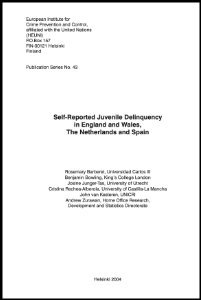By Madeline Rolfe and Sarah Hibbert
Crest Advisory was commissioned by the Youth Endowment Fund to conduct research on serious youth violence and vulnerability in England and Wales. The research was in three parts: an analysis of national indicators of serious violence and vulnerability; a survey of over 2,000 children and young people across England and Wales; and engagement with vulnerable young people in contact with a Youth Offending Service (YOS), and their support workers. This report focuses on our engagement with vulnerable young people in contact with a YOS and their support workers. To conduct the research we reviewed and collected qualitative and quantitative information on the young people. By reviewing these data sources in tandem, we were able to look beyond the statistics to better understand how vulnerability and violence affects young people.
vulnerable to exploitation. In reviewing the life stories of the young people in contact with the YOS, we found a connection between a lack of these protective factors and proximity to violence.
One of the most powerful tools to engage vulnerable young people is establishing trusted relationships. When young people feel that they are listened to and understood, they are more likely to engage with support services and interventions. The life stories of the young people we engaged with highlighted the importance of trusted relationships. For Dominic, whose life story is outlined below, having a dedicated YOS worker who regularly checked in with him helped to reduce his offending.
London: Crest Advisory, 2023. 40p.






